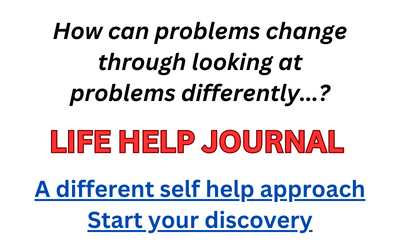It’s not a question of whether self-esteem is important — the only question is how important self-esteem actually is. Right?
I don’t think so…
I may be touching the proverbial third rail here, but I believe self-esteem is a vastly overemphasized quality. In western culture in particular, self-esteem has become much like a product that is both the cure and the blame for perceived problems within the life experience.
Make them do this! It’ll make them better because, ultimately, it will give them self-esteem!
Many self help teachers, and also psychological counselors, put a strong emphasis on enhancing self-esteem as a means for improving life or healing from emotional trauma. They may even lay out regimens that one can follow to boost self-esteem. And then watch the positive results roll in!
Nonsense.
Self-esteem is not something that can be acquired, nor is it something that can be improved. Self-esteem that occurs in one of these ways is false — it is simply an attempt to convince the ego to stop being worried and afraid (an effort that will always eventually fail).
Authentic self-esteem is inherent to the self. This is to say that it is has always been there and always will be. Authentic self-esteem cannot be weakened — not even slightly. It can only be blocked by ego output, and this block is temporary in all cases. At the very latest the ego block to self-esteem will be lifted at the time of death.
Does anyone really want to wait until then?
The immediate means for unblocking self-esteem is to almost do nothing: simply passively listen. What do I mean by this? The ego block to self-esteem nearly always takes the form of chatter. And the chatter is saying basically this: I’m not good enough.
Many people concerned with self-esteem will advocate resisting this negative chatter in one way or another. Do something about it, in other words.
I say do nothing about it at all, except this: listen to it. Just listen to it. Do this without making any judgments about the chatter being good, or bad, or anything else. Also listen without resistance. Don’t push against the chatter. Allow the chatter to speak its full mind while you simply listen.
What you will be doing in this case is accepting versus resisting, and acceptance dissolves ego output. Resistance, on the other hand, strengthens ego output by providing energy, and energy causes growth.
This is the basis for Swiss psychiatrist Carl Jung’s famous observation: What you resist, persists.
Do you want the ego chatter that blocks authentic self-esteem to continue on? Push against it in some way. Do something about it. If you leave the chatter alone, observe it but otherwise simply let it be, it will lose its fight, so to speak, and authentic self-esteem will become unblocked and once again shine through.
This tactic is not as exciting as taking exceptional action, nor does it support the conventional wisdom that making effort is morally righteous, but it represents the only genuine solution — and the effects of it work very quickly to boot.

